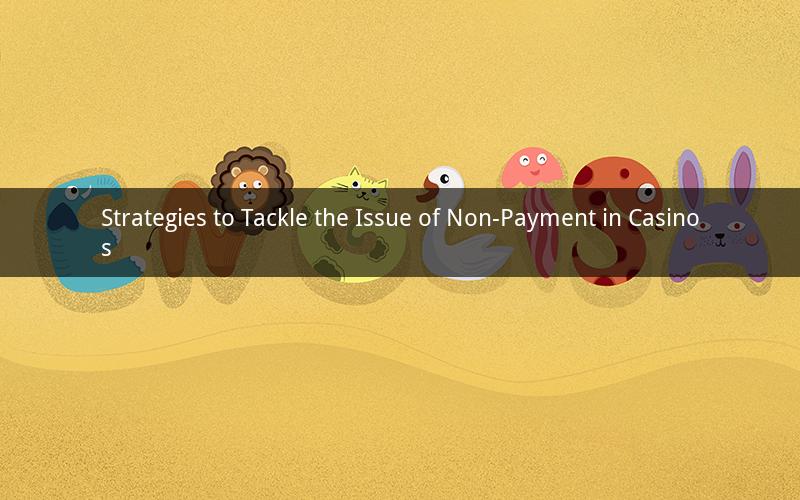
Casino non-payment is a problem that affects both players and casino operators. It is crucial for players to understand what actions to take when they face this issue. In this article, we will explore various strategies to handle the situation when a casino fails to pay its players.
1. Contact the Casino's Customer Support
The first step to take when a casino refuses to pay is to contact their customer support. This can be done through live chat, email, or phone. Clearly explain the situation and provide any relevant documents or proof of the transaction. Be polite and professional in your communication, as this may be the starting point for resolving the issue.
2. Check the Casino's Policies
Before taking further action, it's essential to review the casino's terms and conditions. This will help you understand if there are any specific reasons why the payment was withheld. If the casino has a clear policy regarding payments, make sure you comply with it to avoid any misunderstandings.
3. Seek Help from Regulatory Bodies
If the casino does not respond to your initial contact or fails to comply with their policies, it is advisable to seek assistance from regulatory bodies. Many countries have gaming commissions that oversee the operations of casinos and can investigate complaints. Provide them with all the necessary information, including proof of your transactions and communication with the casino.
4. File a Dispute with Your Bank or Credit Card Company
If the casino used your bank account or credit card for payment, you can file a dispute with your financial institution. Explain the situation and provide any relevant documentation. The bank or credit card company will then investigate the matter and take appropriate action, which may include reversing the transaction or seeking compensation on your behalf.
5. Consult with a Lawyer
If the non-payment issue persists, it may be necessary to consult with a lawyer specializing in gambling law. They can provide you with legal advice and help you navigate the complexities of the situation. A lawyer may also assist you in negotiating a settlement with the casino or pursuing legal action if necessary.
6. Share Your Experience Online
Sharing your experience with online forums, social media, and review sites can be an effective way to bring attention to the issue. Other players may have encountered similar problems, and by sharing your story, you can help them avoid the same pitfalls. Additionally, casinos may be more inclined to address your concerns if they receive negative publicity.
7. Stay Informed about Casino Reviews and Ratings
Before deciding to play at a casino, it is crucial to research its reputation. Look for reviews and ratings from other players to identify any potential red flags. A casino with a history of non-payment or other issues should be avoided.
8. Protect Your Personal Information
When dealing with non-payment issues, it is essential to protect your personal information. Never share sensitive details such as your bank account or credit card numbers with anyone, including the casino. This will help prevent identity theft and other fraudulent activities.
9. Report Scams to the Authorities
If you suspect that the casino is engaging in fraudulent activities, report the matter to the relevant authorities. This will help protect other players and ensure that the casino is held accountable for its actions.
10. Learn from the Experience
Lastly, it is essential to learn from your experience and take steps to avoid similar issues in the future. This may include researching casinos thoroughly, being cautious of promotions that seem too good to be true, and understanding the terms and conditions of any casino you choose to play at.
Questions and Answers:
1. What should I do if the casino customer support does not respond to my inquiry about non-payment?
- You can escalate the issue by seeking help from regulatory bodies or filing a dispute with your bank or credit card company.
2. Can I get my money back if the casino fails to pay me?
- It depends on the circumstances and the actions you take. Filing a dispute with your bank or credit card company, seeking help from regulatory bodies, and consulting with a lawyer can help you recover your funds.
3. Are there any legal implications if a casino fails to pay its players?
- Yes, if a casino is found to be engaging in fraudulent activities or violating gambling regulations, it may face legal consequences. Players can also seek legal action to recover their funds.
4. How can I prevent casino non-payment issues in the future?
- Research casinos thoroughly, read reviews, and understand the terms and conditions before playing. Stay cautious of promotions that seem too good to be true and keep your personal information secure.
5. What should I do if I suspect a casino of fraudulent activities?
- Report the matter to the relevant authorities and provide them with all the necessary information. This will help protect other players and ensure that the casino is held accountable.